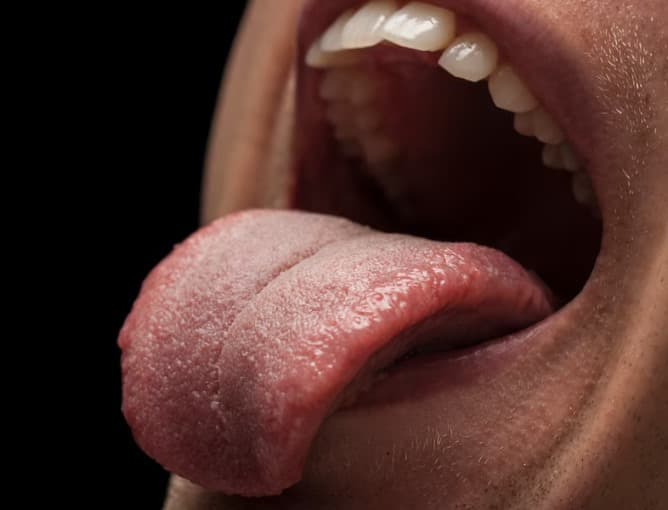Have you ever woken up in the morning and felt a sweet taste in your mouth, despite not eating anything sugary before bed? Or perhaps you’ve experienced a sudden onset of sweetness in your mouth after taking certain medications or supplements? If so, you’re not alone. The sensation of a sweet taste in the mouth can be a perplexing and uncomfortable experience, leaving many wondering what could be causing it.
In this article, we’ll delve into the possible reasons why you might be experiencing a sweet taste in your mouth, and discuss some ways to alleviate this symptom.
Whether it’s due to an underlying medical condition or simply a reaction to certain foods or drinks, understanding the causes behind this phenomenon can help you take the necessary steps to address it.
Possible Causes of Sweet Taste in the Mouth
There are a number of potential reasons why you might be experiencing a sweet taste in your mouth. Here are some of the most common causes:
1. High Blood Sugar Levels
One of the most common causes of a sweet taste in the mouth is elevated blood sugar levels. When blood sugar levels are high, as is the case in people with diabetes or prediabetes, excess glucose can build up in the saliva and cause a sweet taste.
This is often accompanied by other symptoms such as increased thirst, frequent urination, and fatigue.
2. Certain Medications or Supplements
Another possible cause of sweet taste in the mouth is the use of certain medications or supplements. Drugs such as antibiotics, antihistamines, and certain heart medications can cause changes in taste perception, including sweetness.
In some cases, supplements such as zinc or vitamin B12 can also cause a sweet taste.
3. Acid Reflux
Acid reflux, also known as gastroesophageal reflux disease (GERD), is a condition in which stomach acid flows back up into the esophagus. This can cause a variety of symptoms, including heartburn, chest pain, and a sweet or sour taste in the mouth.
If you suspect that you may have acid reflux, it’s important to speak with your healthcare provider for a proper diagnosis and treatment plan.
4. Sinus Infections
Sinus infections, also known as sinusitis, can cause a sweet taste in the mouth due to the buildup of mucus and bacteria in the sinuses.
This can lead to a loss of taste or changes in taste perception, including sweetness. Other symptoms of sinusitis include congestion, headache, and facial pain.
5. Dehydration
Dehydration can also cause a sweet taste in the mouth, as the lack of fluids can cause a buildup of waste products in the saliva. This can lead to a variety of symptoms, including dry mouth, bad breath, and a sweet or metallic taste.
6. Pregnancy
Some pregnant women may experience a sweet or metallic taste in their mouth, which is thought to be due to hormonal changes during pregnancy.
7. Low-carbohydrate Diet
Some people who follow a low-carbohydrate diet, such as the ketogenic diet, may experience a sweet taste in their mouth due to a buildup of ketones.
Ketones are chemicals produced by the liver when the body doesn’t have enough carbohydrates to use for energy.
8. Bacterial infections
Certain bacterial infections, such as oral thrush or H. pylori infection, can cause a sweet or metallic taste in the mouth. Other symptoms of these infections may include mouth sores, difficulty swallowing, and stomach pain.
Tips for Alleviating Sweet Taste in the Mouth
If you’re experiencing a sweet taste in your mouth and are unsure of the cause, there are a few things you can do to alleviate this symptom:
Practice good oral hygiene:
Brushing and flossing regularly can help remove bacteria and other substances that may be contributing to the sweet taste. Don’t forget to clean your tongue as well, as this can be a common source of bacteria buildup.
Drink plenty of water:
Staying hydrated can help flush out waste products from your body, which may be contributing to the sweet taste. Aim for at least eight glasses of water per day.
Avoid sugary foods and drinks:
Consuming foods and drinks high in sugar can exacerbate the sweet taste in your mouth. Opt for whole, nutrient-dense foods instead, such as fruits, vegetables, whole grains, and lean protein.
Rinse with saltwater:
Gargling with saltwater can help reduce bacteria buildup and soothe irritation in the mouth. Mix one teaspoon of salt with a cup of warm water and gargle for 30 seconds, then spit it out.
Manage your stress levels:
Stress can contribute to a variety of health issues, including oral health. Practice stress-management techniques such as meditation, yoga, or deep breathing exercises to help reduce your overall stress levels.
Speak with your healthcare provider:
If the sweet taste in your mouth persists despite trying these tips, it’s important to speak with your healthcare provider for a proper diagnosis and treatment plan. They may recommend further testing or prescribe medication to help alleviate the symptom.
By implementing these tips and taking a proactive approach to managing the sweet taste in your mouth, you can help improve your overall oral health and wellbeing.
FAQ
Does Covid cause sweet taste in mouth?
Yes, some people infected with COVID-19 have reported experiencing a sweet or metallic taste in their mouth as a symptom of the virus. This is thought to be due to the virus affecting the sense of taste and smell. However, it’s important to note that not everyone with COVID-19 experiences this symptom, and it’s just one of many potential symptoms of the virus.
Can stress cause sweet taste in mouth?
Yes, stress can cause a sweet taste in the mouth. When the body is under stress, it releases the hormone cortisol, which can alter the sense of taste and cause a sweet or metallic taste in the mouth.
Conclusion
A sweet taste in the mouth can be a puzzling and uncomfortable symptom, but there are a variety of potential causes to consider. Whether it’s due to elevated blood sugar levels, certain medications or supplements, acid reflux, sinus infections, or dehydration, understanding the underlying cause of this phenomenon can help you take the necessary steps to alleviate it.
If you’re experiencing a sweet taste in your mouth and are unsure of the cause, be sure to speak with your healthcare provider for a proper diagnosis and treatment plan. By taking proactive steps to address this symptom, you can help improve your overall quality of life and ensure optimal health and wellness.

